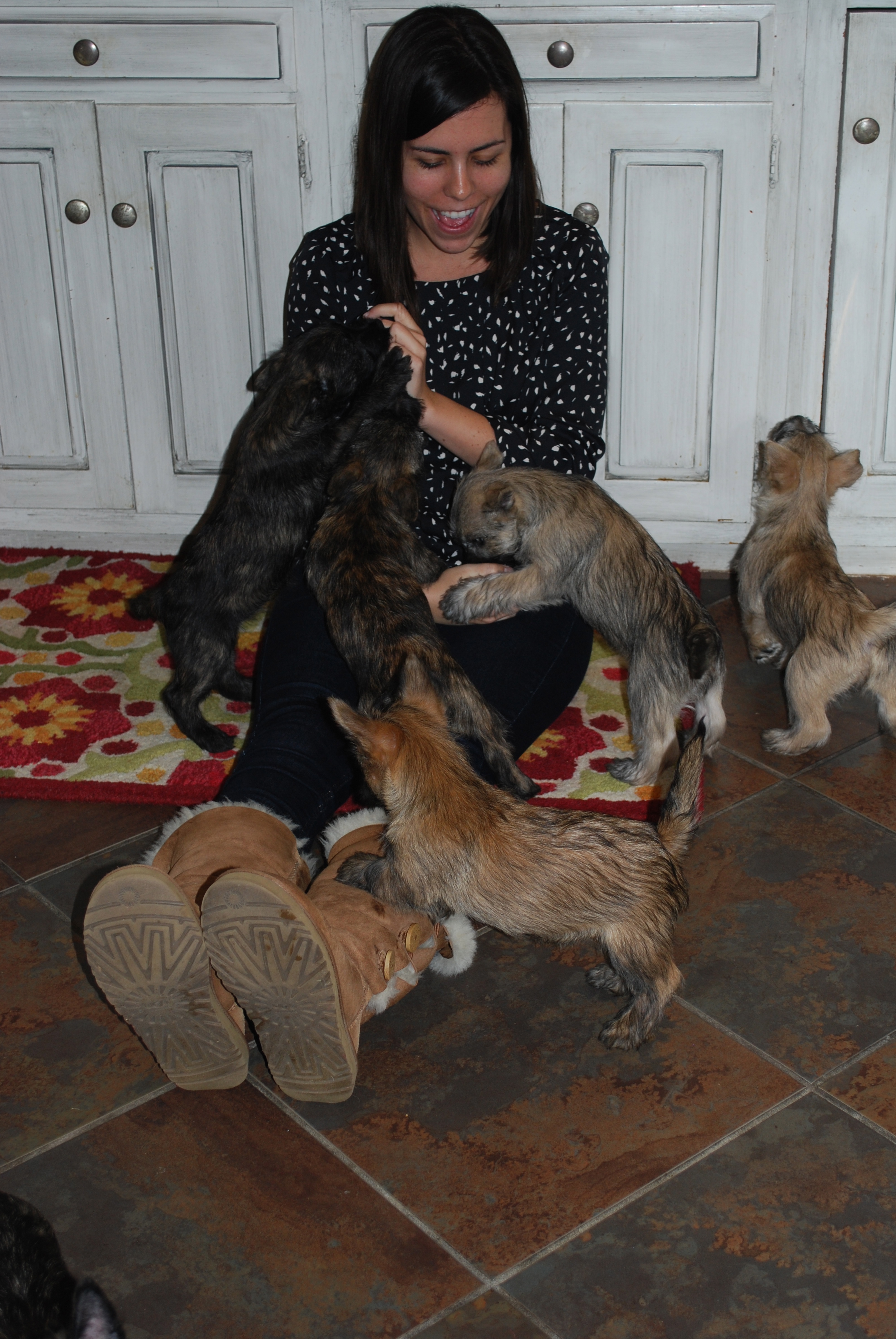1.Health testing is NOT an option. It is the benchmark of a responsible breeder. Every breed carries certain risks for disease(s). Health screening for diseases that have been found in Cairns, such as bile acid blood test for liver disease, ultrasound of kidneys for abnormalities, GCL blood test for Krabbe’s disease, along with knee and eye exams, is common practice of reputable breeders.
2.Health guarantees are not enough. Do you really want to go through the heartbreak and expense of dealing with a sick puppy? Read “HEALTH CONCERNS” on the Cairn Terrier Club of America website: www.cairnterrier.org Ask questions about health testing practices of breeders you contact.
3. Your Cairn experience will be greatly influenced by the puppy’s early development. Socialization with humans, and especially with other adult dogs is important in the development of the puppy. Crate training along with training the puppy to use a litter box provide an easy step to housebreaking. Temperament is not only genetically determined, but also shaped by the dog pack. This is another good reason to wait until a puppy is about 12 weeks old to place. A puppy who is allowed to interact with its pack (of siblings and adults) will not be as fearful. Aggressive behavior later on is usually due to fear the dog has.
4.A fenced yard is a must for the Cairn and most all terriers. They are bred to hunt the countryside for rabbits, squirrels, and other small animals, so when given the opportunity to run, they will. Underground fences will not stop the Cairn when a squirrel runs across the line.
ADULT CAIRNS AVAILABLE – Every now and then we have an available adult Cairn who we seek to place in their forever home as the cherished family pet. Cairns adapt well to new people and places, and in most cases are well-trained and calm while still being playful and active.
